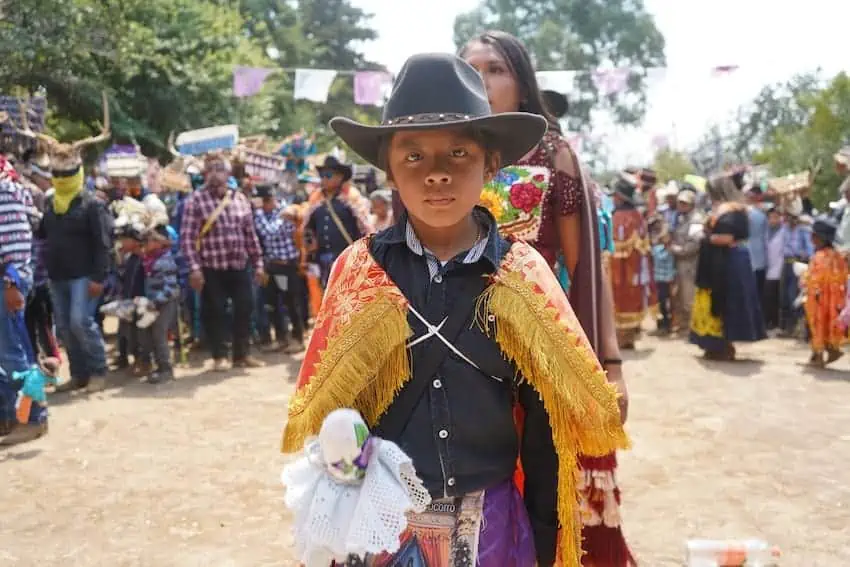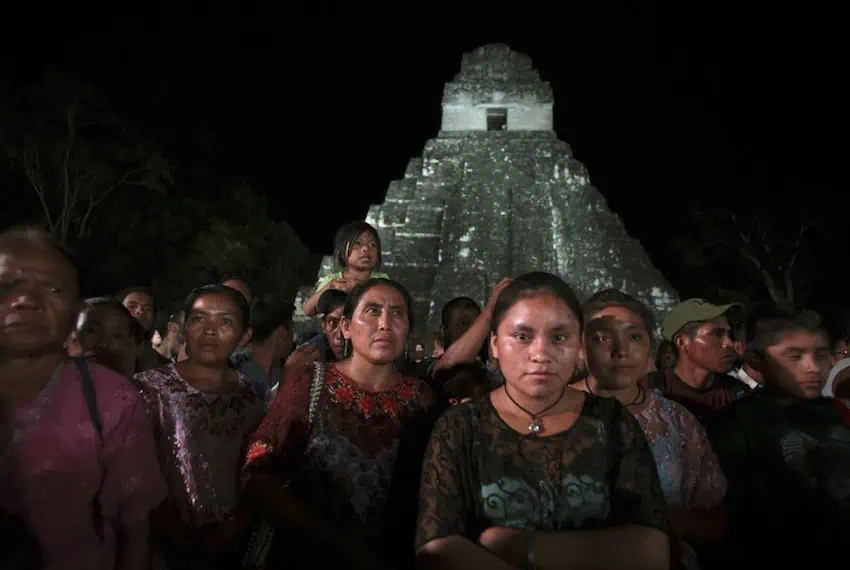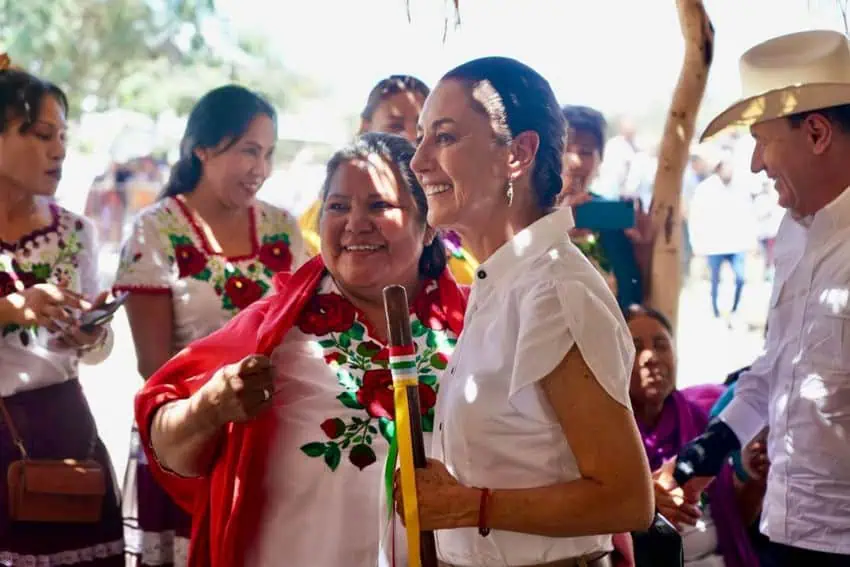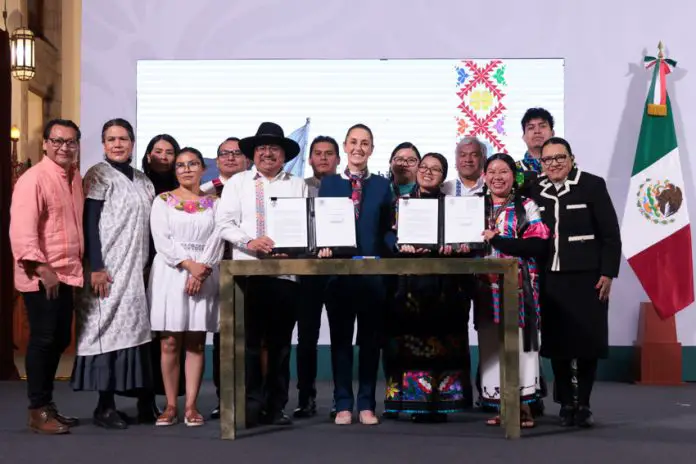President Claudia Sheinbaum signed two presidential decrees on Tuesday that seek to benefit Mexico’s Indigenous peoples.
In one decree, Sheinbaum declared that Indigenous language translations of a recently approved constitutional reform must be published in the government’s official gazette.

The reform, which took effect Oct. 1, guarantees a range of rights for Indigenous peoples.
In the other decree, Sheinbaum instructed the creation of the Presidential Commission on Justice Plans and Regional Development for Indigenous and Afro-Mexican Peoples.
The president signed both decrees at her morning press conference on Human Rights Day, which is observed around the world annually on Dec. 10.
Article 2 of the Mexican Constitution now published in dozens of Indigenous languages
A range of amendments to Article 2 of the Mexican Constitution took effect on Oct. 1 after they were approved by the federal Congress in September.
Article 2 guarantees a range of rights for Mexico’s Indigenous and Afro-Mexican peoples. According to a decree published in the Official Gazette of the Federation on Sept. 30, they now include:

- The right to “decide, according to their [own] regulatory systems and in accordance with this constitution, their internal forms of government, coexistence and social, economic, political and cultural organization.”
- The right to “apply and develop their own regulatory systems for the regulation and solution of internal conflicts.”
- The right to “preserve, protect and develop their tangible and intangible cultural heritage.”
- The right to “promote the use, development, preservation, study and dissemination of Indigenous languages.”
- The right to “be consulted about legislative or administrative measures that are intended to be adopted when these measures could affect or cause significant impacts on their lives or environments.”
The modified article of the Mexican Constitution has now been published in close to 60 Indigenous languages. Those languages include Chontal, K’iche’, Mazateco and Náhuatl.
Adelfo Regino Montes, director of the National Institute of Indigenous Peoples (INPI), told Sheinbaum’s press conference on Tuesday that Article 2 of the Constitution has been translated into “64 linguistic variations” of “57 Indigenous languages.”
He said that the article will be translated into an additional 11 Indigenous languages.
“This is the work we still have to do in the coming days so that we can complete [translations to] the 68 Indigenous languages that are spoken throughout [Mexico’s] national territory,” Montes said.
Presidential Commission to assist in execution of justice plans
Sheinbaum said that the Presidential Commission on Justice Plans and Regional Development for Indigenous and Afro-Mexican Peoples will monitor and assist the execution of various government “justice plans.”
Montes noted that the Yaqui people in Sonora were the first Indigenous group to benefit from a justice plan before highlighting that there are now 17 justice plans that “benefit 26 Indigenous peoples in 12 federal entities.”
The investment in the plans, he added, is 27 billion pesos (US $1.33 billion).
“Our president has given us the instruction to provide continuity to these plans, but also to carry out new justice plans,” the INPI chief said.

“We’re working on that; we’re coordinating with the different entities and departments,” Montes said.
Around one in five Mexicans identify as Indigenous, putting the nation’s Indigenous population at over 23 million. Indigenous Mexicans are more likely to live in poverty than non-Indigenous Mexicans and face discrimination in a variety of forms.
Many Indigenous groups claim they are owed compensation for past injustices.
The Yaqui people, for example, protested during Andrés Manuel López Obrador’s presidency to demand that the government compensate them for the expropriation of land for a range of infrastructure projects.
The López Obrador administration created a justice commission and justice plan for the Yaqui people and returned almost 3,000 hectares of land to them. It also carried out a range of projects, including water initiatives, in Yaqui communities.
On Tuesday, Montes said that the objective of the current federal government is to provide the resources that are required to attend to “the proposals and needs of our [Indigenous] peoples and communities.”
“That’s why the signing of this decree to create this presidential commission is of great importance,” he said.
Sheinbaum said that some 13,000 Indigenous communities will receive funding from the federal government in 2025 that they will be able to use in the way they see fit.
“We’re waiting for the federal budget to be approved. We hope that it’s approved this week so that next week, we can announce how this historic [measure] will be carried out,” she said, highlighting that “for the first time” local authorities in Indigenous communities will have “their own resources.”
With reports from El Universal and Sin Embargo
